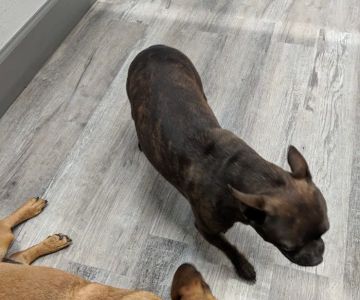Introduction to Veterinary Assistant's Duties
As the backbone of the veterinary healthcare system, veterinary assistants play a crucial role in the day-to-day operations of animal clinics and hospitals. Whether you're just starting in the field or curious about the career, understanding what a veterinary assistant does can help you appreciate the vital support they provide to veterinarians and pet owners alike. From administrative tasks to hands-on animal care, their responsibilities are diverse and essential for the smooth running of any veterinary practice.
1. Assisting Veterinarians with Medical Procedures
One of the most significant duties of a veterinary assistant is assisting veterinarians during medical procedures. Whether it's administering anesthesia, preparing surgical tools, or providing comfort to the animals before and after surgery, the role of a veterinary assistant is hands-on and demanding. Their role ensures that the procedures run smoothly and safely, making them indispensable to the veterinary team.
For instance, when a pet undergoes surgery, the veterinary assistant prepares the surgical area, assists the veterinarian in monitoring the animal’s vital signs, and ensures that all medical instruments are sterile and ready for use. These duties directly contribute to the success of the operation and the animal's well-being.
2. Handling and Caring for Animals
Veterinary assistants spend a lot of time caring for the animals that come into the clinic. This can include tasks like feeding, walking, grooming, and ensuring that animals are comfortable and hydrated. Their compassion and ability to calm anxious pets are crucial in ensuring a positive experience for the animals, which is especially important when they are stressed or in pain.
Moreover, veterinary assistants often have to administer medications and assist with routine health check-ups, including weighing animals and taking vital statistics. Their role in providing high-quality care is essential to maintaining the overall health of pets and animals within the facility.
3. Administrative Duties and Client Interaction
In addition to hands-on care, veterinary assistants also perform critical administrative tasks. They answer phones, schedule appointments, handle patient records, and ensure that the clinic’s paperwork is organized and up to date. Their organizational skills are key to the smooth operation of a veterinary practice, ensuring that veterinarians have everything they need to provide the best care for their patients.
On the client-facing side, veterinary assistants greet pet owners, discuss treatment plans, and provide advice on animal care and nutrition. Their ability to communicate effectively and empathetically with both clients and pets makes them integral to the overall client experience.
4. Cleaning and Sterilizing the Work Environment
Maintaining a clean and sterile environment is crucial in any healthcare setting, and veterinary assistants are responsible for ensuring that the clinic is sanitized and safe. This includes cleaning and sterilizing medical equipment, as well as disinfecting the examination rooms and surgical areas. Keeping the clinic clean prevents the spread of infection and ensures that the animals in their care remain safe from potential health hazards.
Additionally, veterinary assistants may need to help manage waste disposal, ensuring that biohazardous materials are handled properly to meet health and safety standards.
5. Specialized Training and Skills
Veterinary assistants typically undergo specialized training to handle the specific needs of the animals they care for. This includes understanding animal anatomy, common illnesses, and medications. They also gain skills in communication, problem-solving, and the use of veterinary medical equipment.
In many clinics, assistants may also need to be trained in emergency procedures, such as CPR for animals, and how to handle more complex medical situations. They are the first line of defense when it comes to animal health, often stepping in to manage critical situations under the supervision of a veterinarian.
6. Emotional Support and Advocacy for Animals
As part of their role, veterinary assistants often provide emotional support not only for the animals in their care but also for the pet owners. They understand the strong bond between pets and their owners and help facilitate a supportive environment in times of stress. This can include comforting pet owners during difficult times, such as when their pet is undergoing surgery or when the outcome of a treatment is uncertain.
In addition, they may advocate for the animal’s well-being, ensuring that the care given aligns with the animal's needs, as well as the owner's wishes. They often act as a voice for the pets when owners need assistance making decisions about treatment options or long-term care plans.
Conclusion: The Importance of Veterinary Assistants in Animal Healthcare
Veterinary assistants play a critical role in animal healthcare. Their duties encompass a wide range of tasks, from direct animal care and assisting veterinarians during procedures to handling administrative work and providing emotional support to pet owners. Their contributions are often underestimated, but they are an essential part of any veterinary practice.
If you're considering a career as a veterinary assistant or if you're just curious about the daily duties involved, understanding the various roles and responsibilities can help you appreciate the hard work that goes into providing excellent care for animals. Veterinary assistants are dedicated professionals whose impact on the well-being of animals cannot be overstated.











